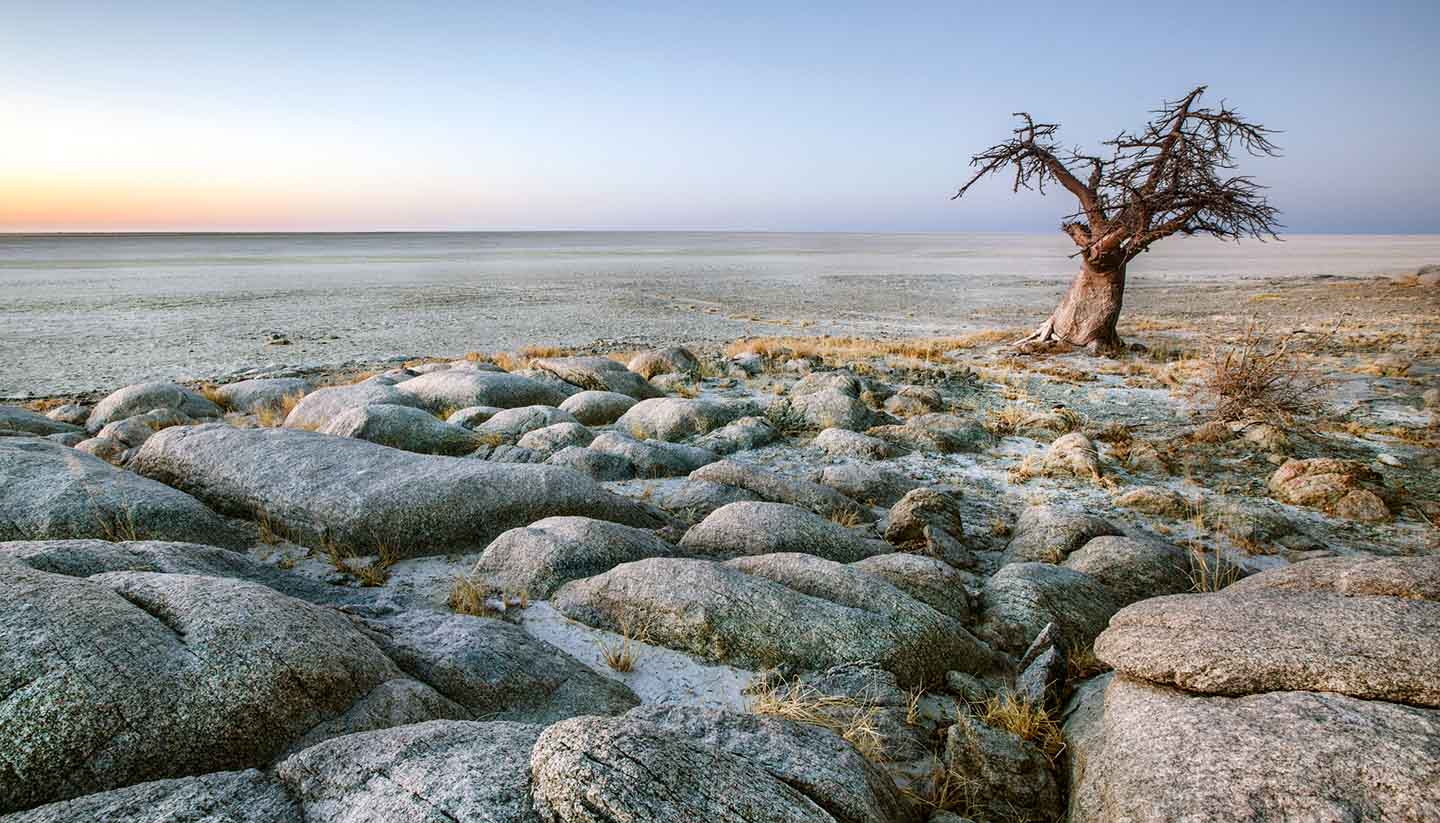Where to stay in Botswana
Hotels
Botswana is known for its high-end, low-impact tourism model, which focuses on exclusive experiences and environmental sustainability, especially in areas like the Okavango Delta and Chobe National Park. Quite a few safari lodges and tented camps in national parks and wildlife reserves offer ultra-luxurious experiences with fine dining, private guides, and plunge pools, while others provide simpler, comfortable accommodations with shared facilities. Many remote camps are accessible only by light aircraft and include full board as part of a package.
In major towns such as Gaborone, Francistown, Maun, and Kasane, visitors will find a variety of hotels, guesthouses, and serviced apartments. These range from international-standard business hotels to more modest family-run establishments. Booking in advance is recommended, particularly during peak travel seasons from June to October.
Self-catering chalets and backpacker lodges are also available in popular gateway towns like Maun and Kasane, catering to more independent travellers. For those on a tight budget, campsites are widely available and often located in scenic areas, though facilities can range from basic to very well-equipped.
Camping
Botswana has a well-established camping culture, with facilities ranging from well-equipped public campgrounds to rustic bush camps offering little more than a fire pit and a view.
Designated campsites are available in and around places like the Okavango Delta, Moremi Game Reserve, Chobe National Park, the Central Kalahari, and the Makgadikgadi Pans. Many are operated by the Department of Wildlife and National Parks or private concession holders. Facilities vary—some offer flushing toilets, hot showers, and firewood, while others are unfenced and provide only basic amenities.
Self-drive camping is a popular option, particularly for those travelling in 4x4 vehicles equipped with rooftop tents and gear. These can be hired in cities like Maun and Kasane, often as part of overland or safari packages. Advance booking is essential for campsites in high-demand areas, particularly during the dry season from June to October.
Wild camping (camping outside of designated areas) is not generally permitted, especially within national parks and protected areas, and may carry fines or safety risks due to wildlife. Visitors should always follow guidelines, keep campsites clean, and never leave food unattended.


